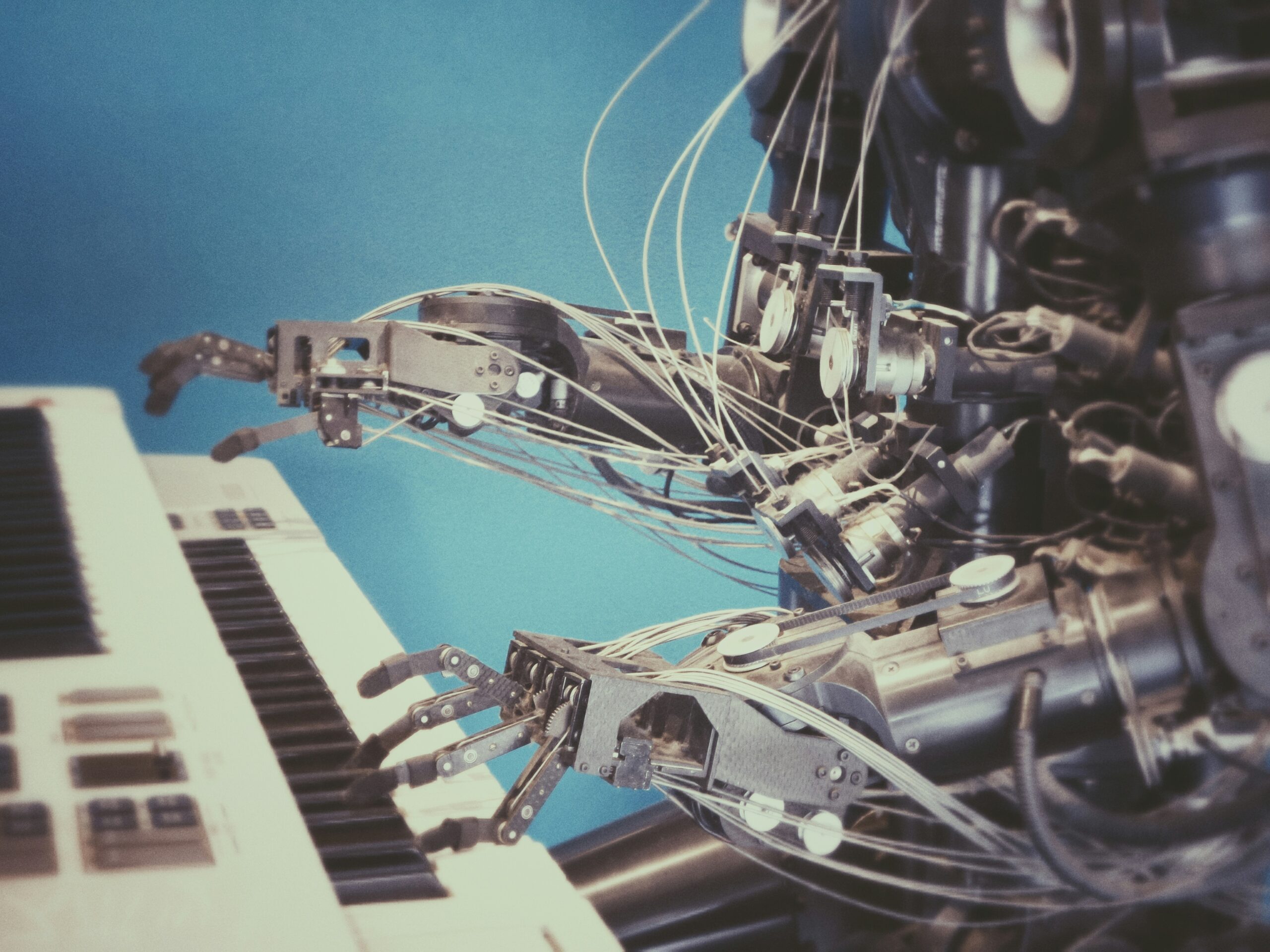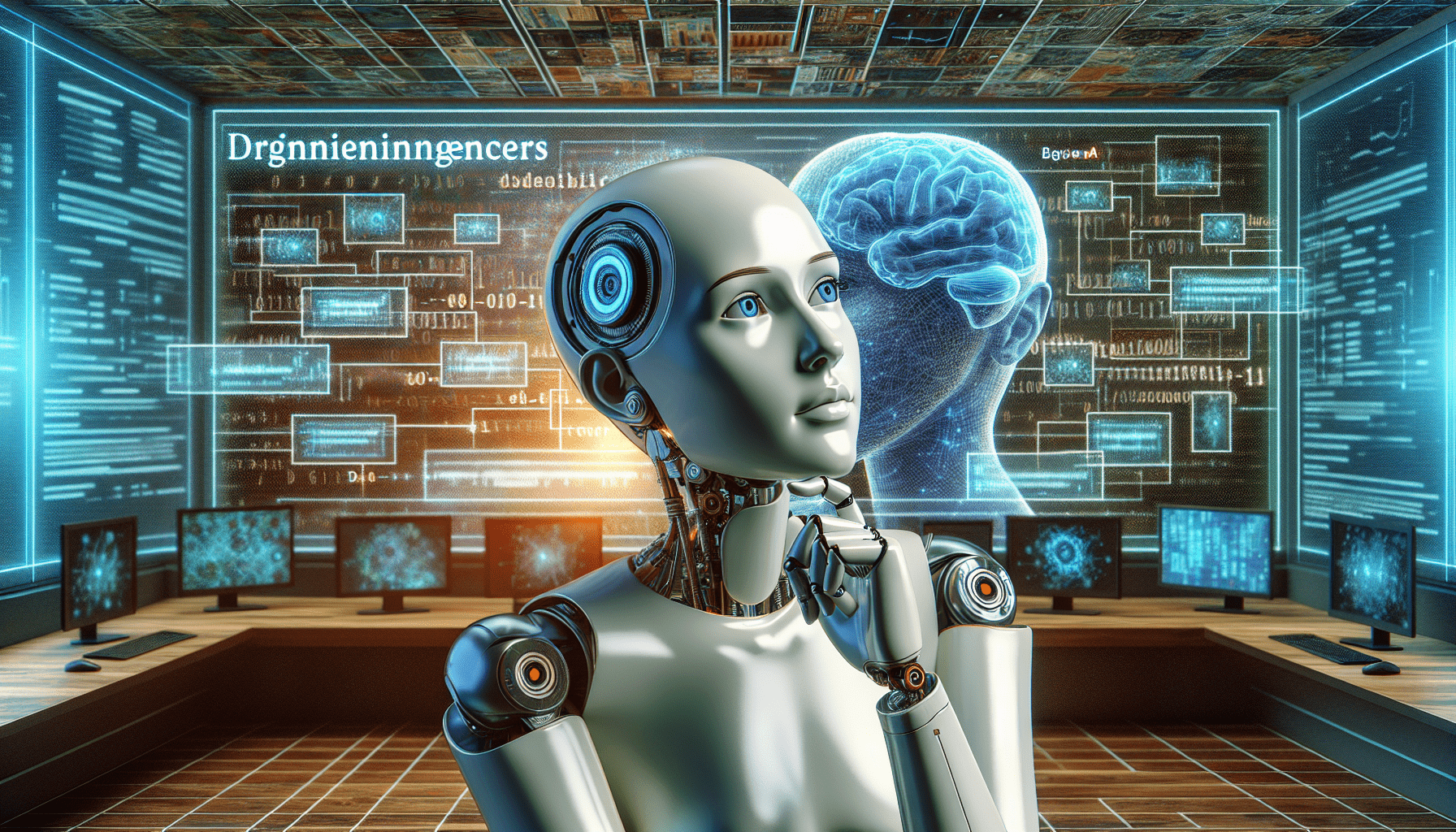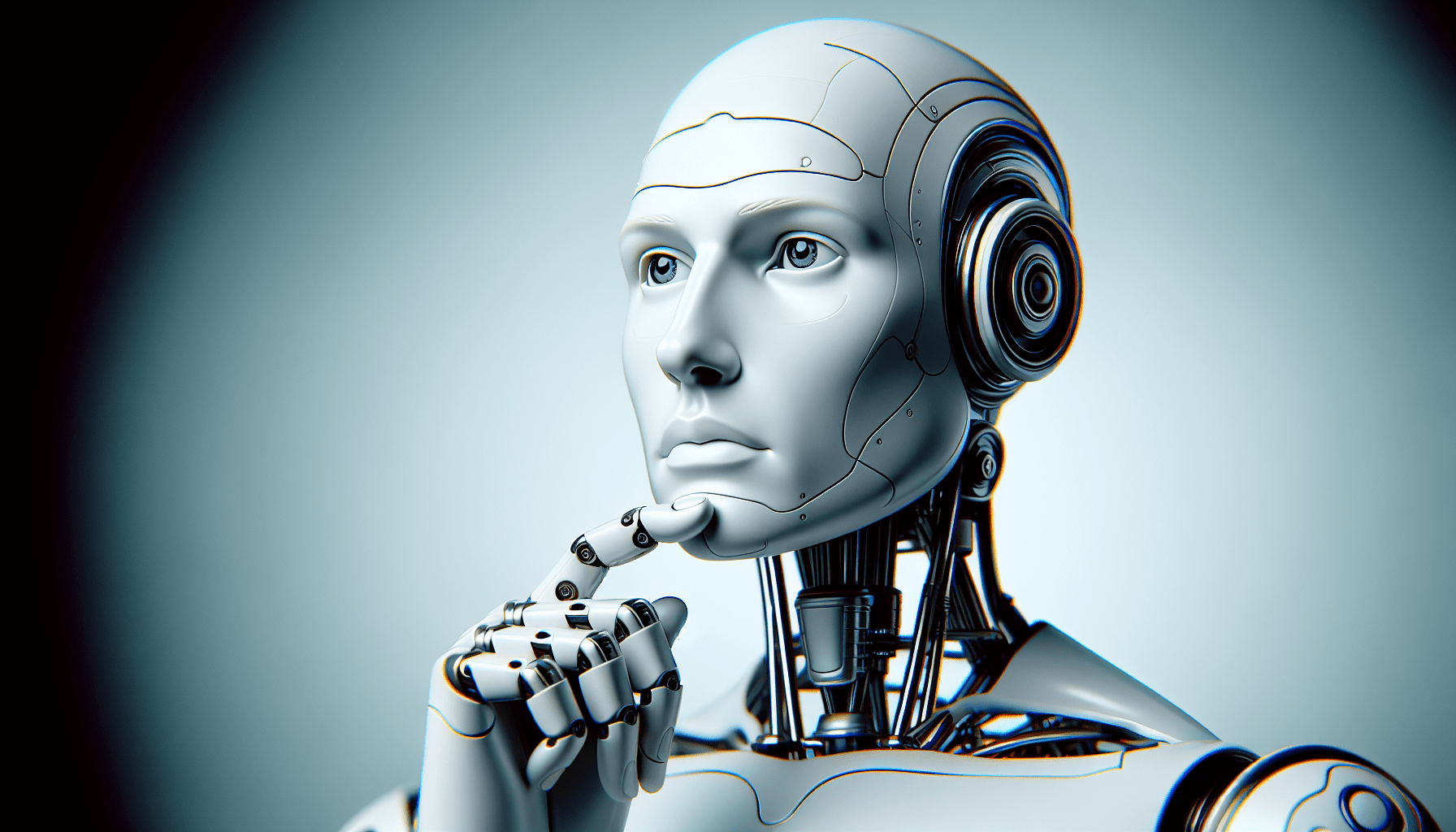Are you curious about the world of Artificial Intelligence (AI) but have no idea where to begin? Look no further! In this article, we will guide you through the basics of AI, making it easy for beginners to understand and embark on their AI journey. From demystifying complex AI jargon to highlighting practical applications, this article will equip you with the knowledge needed to take your first steps into the exciting realm of AI. So, grab a cup of coffee, sit back, and get ready to dive into the fascinating world of AI!
Understanding AI
Artificial Intelligence (AI) refers to the simulation of human intelligence in machines that are programmed to think and learn like humans. AI enables machines to perform tasks that typically require human intelligence, such as speech recognition, decision-making, problem-solving, and even creativity.
Definition of AI
AI is a broad field that encompasses various subfields, including machine learning, natural language processing, computer vision, and robotics. It involves the development of algorithms and models that allow machines to analyze data, learn from experience, and make intelligent decisions.
AI vs. Machine Learning
While AI and machine learning (ML) are often used interchangeably, they are not the same thing. ML is a subset of AI that focuses on the development of algorithms and statistical models that enable machines to learn and improve from experience. In other words, ML is the technique that powers many AI applications.
AI Applications in Everyday Life
AI has become an integral part of our everyday lives, even if we may not always realize it. From voice assistants like Siri and Alexa to personalized recommendations on streaming platforms, AI is present in various forms. AI is also used in industries such as healthcare, finance, manufacturing, and marketing, streamlining processes and improving efficiency.
Benefits and Challenges of AI
AI offers numerous benefits across different sectors. It can automate repetitive tasks, enhance productivity, improve decision-making, and provide personalized experiences. However, there are also challenges associated with AI. Bias and fairness, privacy and security, transparency and explainability, and accountability and responsibility are some ethical considerations that need to be addressed for the responsible development and deployment of AI systems.
Types of AI
Narrow AI
Narrow AI, also known as weak AI, is designed to perform specific tasks or solve specific problems. It is limited to narrow domains and does not possess general intelligence. Examples of narrow AI include voice recognition systems, recommendation algorithms, and image recognition software.
General AI
General AI, also referred to as strong AI or human-level AI, aims to possess the same level of intelligence as humans. It is capable of understanding, reasoning, and learning across different domains. General AI is still largely hypothetical and remains a topic of ongoing research and development.
Superintelligence
Superintelligence refers to AI systems that surpass human intelligence across all domains. It represents an intelligence level that is vastly superior to what humans can achieve. While superintelligence is a concept that sparks debates and speculation, its actual development and potential impacts are still uncertain.

Getting Started with AI
Basic Knowledge and Skills for AI
To get started with AI, it’s essential to have a basic understanding of computer science, mathematics, and statistics. Proficiency in programming languages such as Python or R is also beneficial. Additionally, knowledge of algorithms, data structures, and probability theory is crucial for building AI models.
Setting Up Your AI Environment
Setting up your AI environment involves installing the necessary software and tools to develop and run AI applications. Popular AI frameworks like TensorFlow, PyTorch, and scikit-learn provide powerful tools for building and training AI models. These frameworks can be installed on your local machine or used through cloud-based platforms such as Google Colab or Amazon Web Services (AWS).
Popular AI Tools and Frameworks
There are various AI tools and frameworks available to aid in AI development. TensorFlow, developed by Google, is widely used for its flexibility and scalability in building machine learning models. PyTorch, on the other hand, is known for its dynamic computation and popularity in the research community. scikit-learn is a popular choice for its ease of use and practicality in building and evaluating ML models.
Accessing AI Data Sets
Accessing diverse and relevant data sets is crucial in AI development. There are numerous platforms and repositories that provide access to publicly available data sets for training and testing AI models. Popular platforms include Kaggle, Google Dataset Search, and UCI Machine Learning Repository, among others.
Online AI Communities and Resources
Being a part of online AI communities can be immensely helpful for learning and staying updated on the latest advancements in the field. Platforms like Stack Overflow, GitHub, and Kaggle provide opportunities for collaboration, sharing ideas, and getting feedback on AI projects. Additionally, there are various online courses and tutorials that cater to beginners, such as Coursera’s “AI for Everyone” and Udacity’s “Intro to AI.”
Building Your First AI Model
Defining Your Problem Statement
Before starting to build an AI model, it is crucial to clearly define the problem you want to solve. Identify the desired outcome and understand the data and resources available to you. A well-defined problem statement helps guide the development and evaluation process.
Collecting and Preprocessing Data
Data collection and preprocessing are essential steps in building an AI model. Gather relevant data that is representative of the problem domain. Data preprocessing involves cleaning, transforming, and normalizing the data to make it suitable for training the model. This step also includes splitting the data into training, validation, and test sets.
Choosing the Right AI Algorithm
Choosing the right AI algorithm depends on the problem you are trying to solve and the characteristics of your data. There are various algorithms to choose from, including linear regression, decision trees, support vector machines, and neural networks. Understanding the strengths and limitations of each algorithm helps in selecting the most appropriate one for your specific problem.
Training and Evaluating Your Model
Training your AI model involves feeding it with labeled data and iteratively adjusting the model’s parameters to minimize errors. The model learns from the data to make predictions or classifications. Evaluating the model involves assessing its performance on unseen data, using metrics such as accuracy, precision, recall, or mean square error.
Fine-tuning and Optimizing Your Model
Fine-tuning and optimizing your model involve iteratively improving its performance by adjusting hyperparameters, data preprocessing techniques, or model architecture. Techniques like cross-validation, regularization, and ensemble methods can be used to enhance the model’s accuracy and generalization capabilities.

Ethical Considerations in AI
Bias and Fairness
One of the key ethical considerations in AI is bias and fairness. AI models learn from data, and if the data contains biases, the model may perpetuate those biases in its decisions. It is crucial to identify and address bias in data and algorithms to ensure fair and equitable outcomes.
Privacy and Security
AI often deals with sensitive information, making privacy and security important considerations. Data protection and privacy laws must be followed to safeguard personal and confidential data. AI systems must be designed to ensure the security and integrity of data throughout the AI lifecycle.
Transparency and Explainability
Transparency and explainability refer to the ability to understand and interpret how AI models make decisions. When AI is used to make critical decisions, such as in healthcare or finance, it is crucial to have transparency and the ability to explain the underlying reasoning to build trust and ensure accountability.
Accountability and Responsibility
As AI becomes more integrated into society, accountability and responsibility become vital. Clear guidelines and regulations are needed to ensure that AI developers, users, and organizations are accountable for the consequences of AI systems. Ethical frameworks and codes of conduct help guide responsible AI development and deployment.
AI in Business
AI in Marketing and Sales
AI is revolutionizing marketing and sales by enabling personalized customer experiences and targeted advertising. AI-powered chatbots, recommendation engines, and predictive analytics help businesses understand consumer preferences, optimize marketing campaigns, and improve customer conversion rates.
AI in Customer Service
AI is transforming customer service through chatbots, virtual assistants, and natural language processing. These technologies can provide instant support, answer frequently asked questions, and route inquiries to the appropriate departments, improving response times and customer satisfaction.
AI in Finance
AI is revolutionizing the finance industry by streamlining processes, detecting fraud, and providing personalized financial advice. AI-powered algorithms can analyze vast amounts of financial data, identify patterns, and make accurate predictions, assisting in risk assessment and investment decision-making.
AI in Manufacturing
AI is transforming manufacturing by improving productivity, quality control, and predictive maintenance. AI-powered robots and automation systems can optimize production lines, detect defects, and predict equipment failures, reducing downtime and improving overall operational efficiency.
AI in Healthcare
AI has immense potential in healthcare, from assisting in medical diagnoses to drug discovery and personalized treatment plans. AI algorithms can analyze patient data, including medical images and electronic health records, to aid in early detection, treatment optimization, and disease surveillance.

Real-World AI Examples
Autonomous Vehicles
Autonomous vehicles, such as self-driving cars, are a prime example of AI in action. AI algorithms analyze sensor data, make real-time decisions, and control the vehicle’s movements, leading to safer and more efficient transportation.
Virtual Assistants
Virtual assistants like Siri, Alexa, and Google Assistant have become an integral part of our lives. These AI-powered applications can understand voice commands, provide answers to queries, set reminders, and perform various tasks, making our daily lives easier and more convenient.
Image Recognition
Image recognition is another area where AI has made significant advancements. AI algorithms can accurately identify objects, people, or text within images, enabling applications such as facial recognition, object detection, and automated image tagging.
Recommendation Systems
Recommendation systems use AI algorithms to analyze user preferences and provide personalized recommendations. These systems are commonly seen in online platforms such as e-commerce websites, streaming services, and social media platforms, enhancing user experiences and influencing purchasing decisions.
Predictive Analytics
Predictive analytics utilizes AI algorithms to analyze historical data and make predictions about future events or outcomes. These predictions help businesses in making informed decisions, such as demand forecasting, risk assessment, and fraud detection.
AI Career Paths
AI Researcher
AI researchers engage in cutting-edge research to advance the field of AI. They explore new algorithms, develop innovative models, and contribute to the scientific community’s understanding of AI. AI researchers often have advanced degrees in computer science, mathematics, or related fields.
Data Scientist
Data scientists analyze large volumes of data to extract valuable insights using AI and statistical techniques. They work on data cleaning, feature engineering, model building, and evaluating model performance. Data scientists often have a strong background in mathematics, statistics, and programming.
AI Engineer
AI engineers are responsible for developing and deploying AI systems. They design and implement AI models, optimize algorithms, and deploy AI solutions in real-world scenarios. AI engineers need a solid understanding of AI algorithms, programming languages, and software engineering principles.
AI Ethicist
AI ethicists ensure responsible and ethical development and use of AI systems. They evaluate the social and ethical implications of AI and provide guidance on fair and bias-free AI applications. AI ethicists often have backgrounds in philosophy, social sciences, or legal studies, with a deep understanding of AI technology.
AI Consultant
AI consultants work with organizations to identify how AI can be leveraged to solve business problems and improve efficiency. They assess AI readiness, develop AI strategies, and provide guidance on the implementation of AI projects. AI consultants need a broad understanding of AI technologies and business domains.

Challenges and Future of AI
Data Quality and Availability
The quality and availability of data present challenges in AI development. Obtaining labeled training data can be costly and time-consuming. Additionally, biased or incomplete data can negatively impact the performance and fairness of AI models.
Ethical and Legal Frameworks
As AI becomes more prevalent, ethical and legal frameworks need to be established to address concerns surrounding privacy, bias, accountability, and transparency. Regulations and guidelines are necessary to ensure the responsible development, deployment, and use of AI.
Job Displacement
One concern associated with AI is the potential displacement of jobs. As AI systems automate tasks traditionally performed by humans, some job roles may become obsolete. However, new job opportunities in AI development, optimization, and human-AI collaboration are also emerging.
AI Governance
AI governance refers to the policies, rules, and regulations governing the development and deployment of AI systems. The development of effective governance frameworks that balance innovation, fairness, and security is crucial for managing and regulating AI technologies.
AI’s Potential Impact on Society
The future impact of AI on society is a subject of debate and speculation. While AI has the potential to bring about significant advancements in various fields, including healthcare, transportation, and education, it also raises concerns about ethics, privacy, and societal implications. Understanding and addressing these potential impacts is essential for a responsible AI future.
Conclusion
In conclusion, AI is a rapidly evolving field with a vast range of applications and potential. Understanding the basics of AI, its various subfields, and the ethical considerations involved is crucial for anyone looking to explore or work in the field. By gaining the necessary knowledge, skills, and resources, you can contribute to the responsible development and use of AI and shape the future of this exciting field. So, don’t hesitate to dive in, explore, and embrace the world of AI!







Leave a Reply